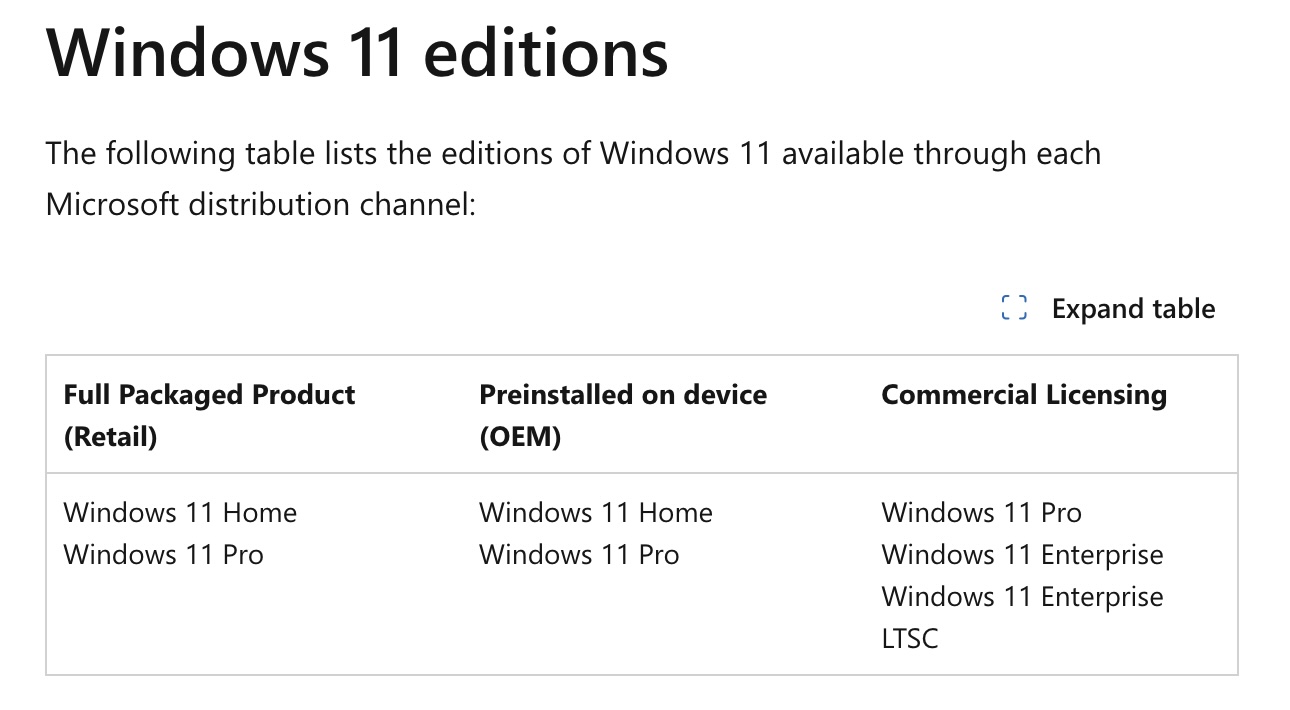Windows 11 vs ChromeOS for business: Is one better than the other for your needs?
Is one of these better for your business?
Choosing the right operating system is essential for productivity and efficiency in any business environment.
Two popular options are Windows 11 and ChromeOS, and this article compares these platforms, examining their strengths, weaknesses, and suitability for various business needs.
Businesses can gain valuable insights into which operating system best meets their needs by analyzing software compatibility, security features, hardware requirements, and cost-effectiveness. We aim to help organizations make informed decisions about their operating systems for 2025, ultimately fostering a more efficient and productive work environment.
Windows 11 vs ChromeOS for business: features
Windows 11 provides extended business features in addition to its core functionality. The operating system supports various desktop applications, including traditional software and enterprise-level solutions, making it suitable for organizations of every size. Advanced multitasking features help users organize their applications and projects across multiple windows. Windows 11 also extends its hardware compatibility range so organizations can deploy new and existing devices without extra costs.
Meanwhile, the operating system presents an intuitive interface that simplifies workflows so employees can learn it quickly. The operating system extends productivity benefits to businesses within the Microsoft ecosystem because it profoundly integrates with the likes of Office 365, Teams, and Azure services.
Windows 11 also secures data with BitLocker encryption and provides real-time threat protection through Windows Defender. These features establish a secure operational environment, reducing data breaches and cyber threat risks.
ChromeOS follows a distinct strategy of prioritizing simplicity alongside speed and cloud connectivity. Its simple design makes it ideal for companies that need efficient and user-friendly systems. Organizations that depend on Google Workspace and online tools find ChromeOS particularly compelling because it enables smooth teamwork and communication between team members.
Additionally, ChromeOS devices start-up exceptionally quickly, allowing users to access web-based applications and services immediately. ChromeOS offers fewer traditional desktop applications than Windows 11 but makes up for it by supporting more Android apps, broadening its capabilities. The operating system protects against malware and other potential threats through its strong security features, which include sandboxing and verified boot. Businesses that operate primarily online will find the built-in security framework very beneficial because it provides reassurance when employees access cloud-based applications and sensitive information.
Windows 11 vs ChromeOS for business: performance
Windows 11 can run many applications locally, making it great for video editing, 3D rendering, and complex software development tasks. However, this flexibility can make the system slow over time due to the accumulation of software and files.
ChromeOS is the opposite; it is designed to be fast and efficient. Its reliance on web-based applications and cloud storage results in faster boot times, better browsing, and generally faster performance, even on less powerful hardware. This makes ChromeOS an excellent choice for businesses concerned with the speed and responsiveness of daily activities like email, document editing, and online meetings.
The choice of the two operating systems depends on the business’s specific needs and workloads in terms of performance.
Windows 11 vs ChromeOS for business: support
Microsoft and Google offer different Windows 11 and ChromeOS support options, respectively. Access to a large network of IT professionals, extensive vendor support, and abundant resources make Windows 11 strong in its established business position. Microsoft has multiple support plans and third-party services that specialise in Windows support. The many support sources help businesses find help with their technical issues, software problems, and hardware breakdowns.
ChromeOS is a newer business environment solution, but it’s currently gaining business adoption. Google provides detailed online information and support options for ChromeOS systems, while manufacturer-specific support is also available for Chromebooks. The cloud-based nature of ChromeOS, combined with regular updates, helps minimize technical problems compared with Windows systems, thus generally reducing support requirements. However, businesses looking for highly complex software solutions may discover that ChromeOS support is not as comprehensive as those available for Windows 11.
Windows 11 vs macOS for business: pricing
Businesses need detailed pricing when it comes to choosing an operating system. Generally, ChromeOS stand out in this regard. ChromeOS devices, including Chromebooks, maintain lower price points compared to equivalent Windows 11 devices. The low cost stems from both the operating system being free and the reduced need for powerful hardware by ChromeOS.
Additionally, ChromeOS devices provide businesses the opportunity to provide employees affordable equipment options, which makes this a compelling choice for both organizations that set budget constraints and those who need massive device deployment.
Windows 11 almost always requires significant financial investment for both licensed operating systems and capable hardware. Despite this apparent disadvantage down through the years people have found the long term costs to be quite attractive. A wider software choice and potentially greater productivity through dedicated apps could make higher initial costs worthwhile for some organizations. The choice between these two options rests on the particular requirements and financial situation of the organization.

Windows 11 vs ChromeOS for business: verdict
For businesses, Windows 11 provides several advantages, including broad software compatibility, robust features, and extensive support. This makes it suitable for organizations with diverse application needs and existing Microsoft infrastructure. However, these benefits come with a higher cost for both hardware and software, which can sometimes lead to performance issues and increased IT overhead.
In contrast, ChromeOS excels in speed, simplicity, and affordability. It offers a streamlined experience that is ideal for cloud-centric businesses that rely heavily on web applications and Google Workspace. With lower hardware requirements and automatic updates, ChromeOS reduces the burden of IT management. However, it has limited offline functionality and less software compatibility compared to Windows 11, which may pose challenges for businesses with specialized software or demanding local processing needs.
Ultimately, the best choice between the two operating systems depends on a business's specific software requirements, budget, IT resources, and reliance on cloud-based workflows.
You might be interested in our pick of the best Chromebook options right now
Are you a pro? Subscribe to our newsletter
Sign up to the TechRadar Pro newsletter to get all the top news, opinion, features and guidance your business needs to succeed!
Bryan M. Wolfe is a staff writer at TechRadar, iMore, and wherever Future can use him. Though his passion is Apple-based products, he doesn't have a problem using Windows and Android. Bryan's a single father of a 15-year-old daughter and a puppy, Isabelle. Thanks for reading!
You must confirm your public display name before commenting
Please logout and then login again, you will then be prompted to enter your display name.

